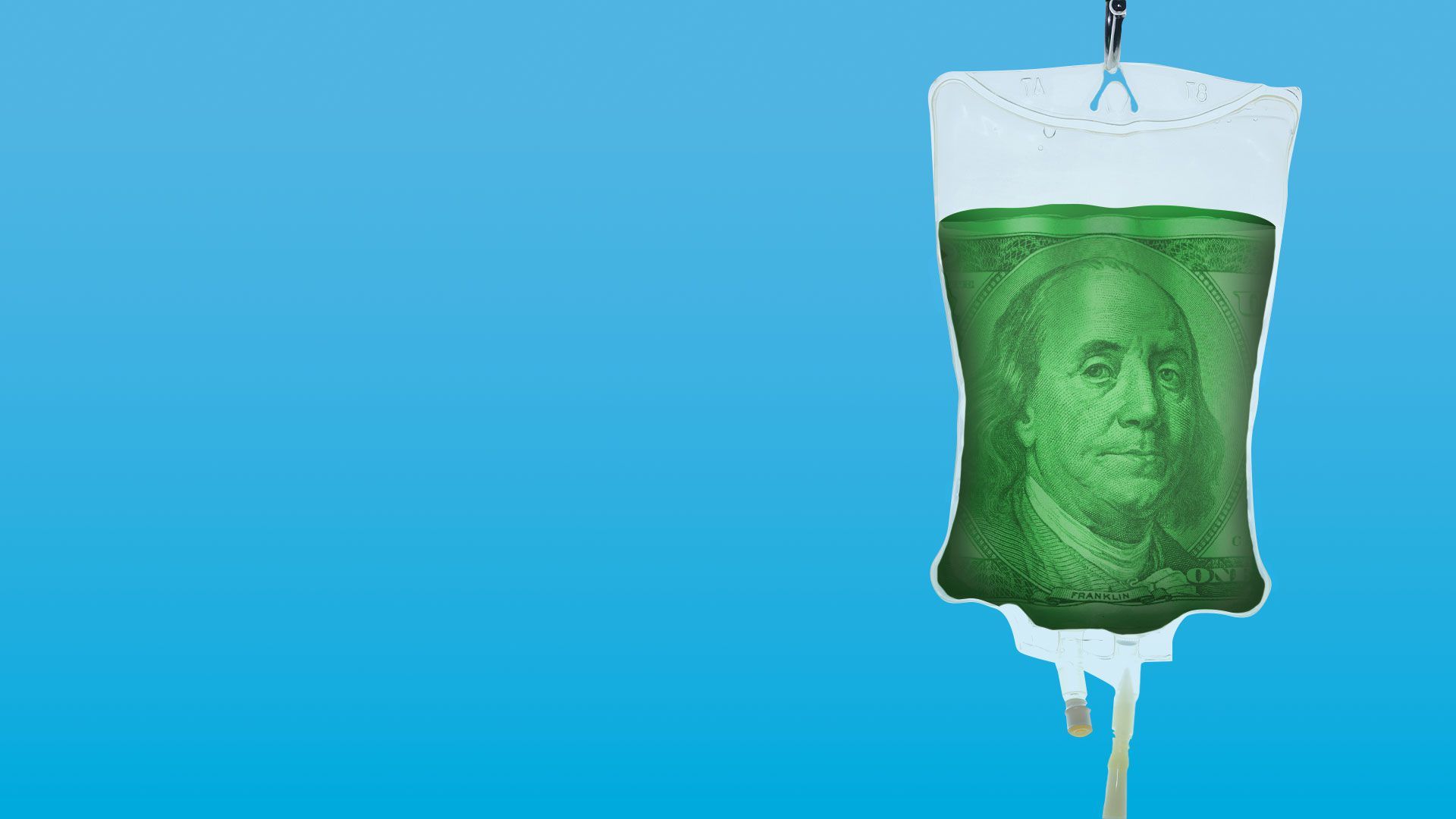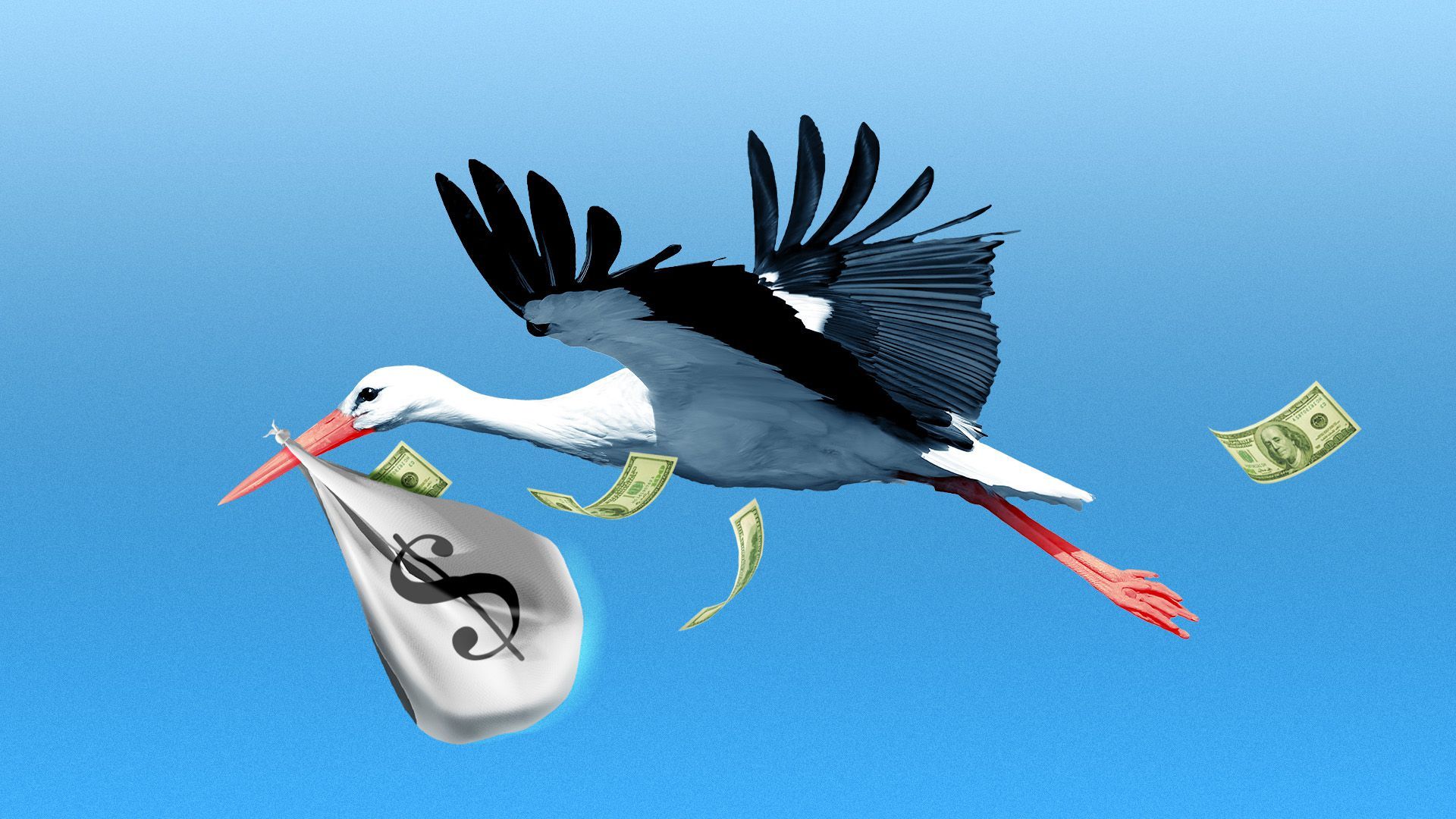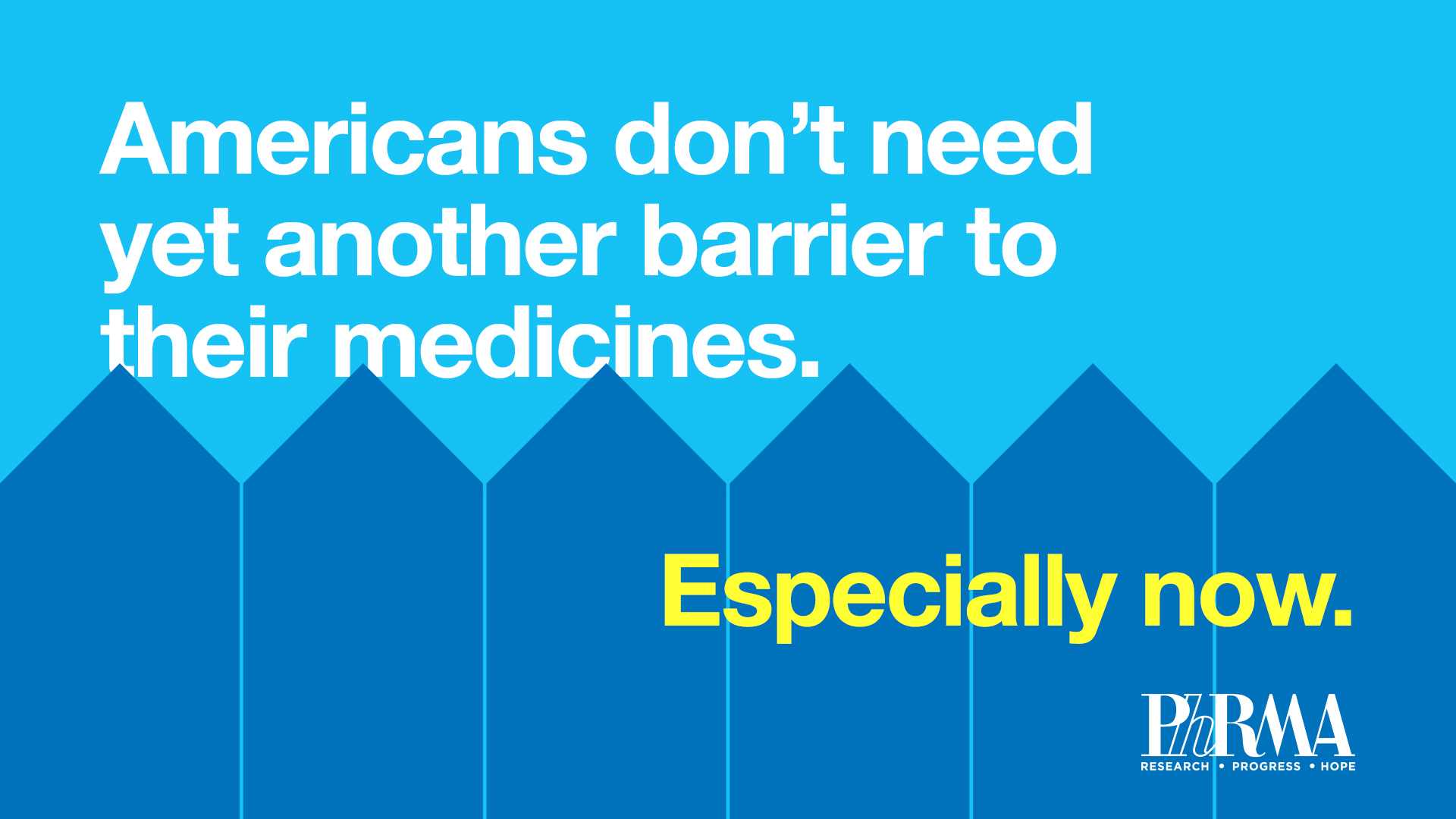Plus, biotechs are in a funk | Wednesday, March 09, 2022
| | | | | | | Presented By PhRMA | | | | Axios Vitals | | By Caitlin Owens ·Mar 09, 2022 | | Good morning. I'll be helming Vitals again for the rest of the week. Today's newsletter is 853 words, or a 3-minute read. | | | | | | 1 big thing: Biotechs in a funk after COVID boom |  | | | Illustration: Aïda Amer/Axios | | | | The biotech industry is slumping after delivering life-saving COVID treatments and attracting droves of investors early in the pandemic, Axios' Adriel Bettelheim reports. Why it matters: Biotechs keep the drug pipeline flowing with novel treatments — and make attractive M&A targets for big pharmaceutical manufacturers. - But regulatory uncertainty and a return to pre-pandemic life are combining to cool interest in public and private markets, experts say.
By the numbers: The SPDR S&P Biotech ETF fund, which is often used as a proxy for the industry performance, is down more than 37% over the past 12 months, far underperforming the broader market. - Biotech funding in February was down 59% year-over-year, with both public market transactions and venture capital funding falling off, per Jefferies.
Zoom in: After a run of explosive growth, the industry may have been due for a correction. Biotech flourished at the height of the pandemic, but investors are now returning to other sectors, including retail and travel. - Analysts say investors also have been confused by the sheer number of biotechs being funded in private markets — and are uncertain how to pick winners and losers.
- "To me it comes down to the pace. It's been a little bit too fast and I think a lot of that is coming home to roost," Oppenheimer strategist Jared Holz said on a recent "Bio Banter" podcast.
- There's also continued uncertainty surrounding drug pricing legislation, pharma supply chains and federal antitrust reviews. Prospective changes to the FDA's drug approval process also could be in the offing.
Yes, but: The biotechs still are churning out products for investors to put money into. Biotechs that depend on capital markets grew R&D by 20–25% last year, Jefferies estimates. |     | | | | | | 2. COVID funding compromise in context |  | | | Illustration: Sarah Grillo/Axios | | | | Congress appears likely to allocate more than $15 billion more toward pandemic preparedness, but that probably wouldn't be enough to adequately safeguard the U.S. against future waves of COVID-19 — or even a potential wave this fall. Why it matters: Having vaccines and therapeutics ready for a threat that may not fully materialize is difficult and expensive, but the alternative is risking hundreds of thousands more deaths and another huge hit to the economy. Driving the news: Congress is poised to give the administration $15.6 billion more in new COVID funding, including $10.6 billion for testing, therapeutics, and vaccines domestically and $5 billion for international efforts, according to a source familiar. By the numbers: Replenishing vaccines and therapeutics alone could cost the U.S. billions of dollars. - The U.S. has some vaccine supply left from earlier purchases, but would likely need to buy more if Americans need another booster this fall and if children end up needing a third shot. Buying another dose for the roughly 260 million adults at Pfizer's original price of around $20 would cost more than $5 billion.
- The administration still needs to pay Pfizer around $5 billion for its most recent commitment to buy more antivirals, according to a source familiar with the situation.
- Monoclonal antibody treatments cost around $2,000 each. That means $1 billion only buys less than 500,000 doses. The administration is currently delivering 100,000 doses a week to states.
- And some experts have called for an Operation Warp Speed 2.0 for next-generation vaccines and new therapeutics.
Go deeper. |     | | | | | | 3. U.S. set to miss vaccine donations goal | | The U.S. has pledged to donate more than a billion COVID vaccines around the world, but would have to significantly scale up its monthly donation rate in able to do so by the end of this year, according to a new Public Citizen analysis. Why it matters: Vaccines not only save lives, but also help protect the world against new variants. Details: The U.S. had shipped 474 million doses abroad by the end of February, and was recently donating around 60 million doses a month. - To reach 1.2 billion doses by the end of 2022 — which USAID recently cited as the administration's goal — the U.S. would have to increase its donation rate to 73 million doses per month, per Public Citizen.
What we're watching: As we wrote above, Congress is poised to give billions more to international pandemic efforts, which could include supporting vaccinations. |     | | | | | | A message from PhRMA | | Voters want Congress to address health insurance | | |  | | | | A decisive majority of Americans (86%) agree Congress should crack down on abusive health insurance practices impacting patients' access to care. Why it's important: Greater transparency and accountability within the current health insurance system. Read more in new poll. | | | | | | 4. Humira's latest (future) competitor | | AbbVie on Tuesday agreed to settle a series of trade disputes and allow the Icelandic drugmaker Alvotech to produce a copycat version of the blockbuster anti-inflammatory drug Humira for the U.S. market starting July 1, Adriel writes. Why it matters: Cheaper versions of Humira exist, but AbbVie has pursued a legal strategy to delay their entry in the U.S. Details: The settlement covers an International Trade Commission case AbbVie brought last December that alleged Alvotech stole trade secrets to develop its biosimilar, called AVT02. By the numbers: AbbVie's 2021 sales of Humira topped $20.7 billion, making it the highest grossing drug in the world, other than COVID-19 vaccines. - AVT02 has already received approval in Europe, Canada, and the U.K. Alvotech said last month that the FDA accepted for review a Biologics Licensing Application for the product with new data backing interchangeability with Humira.
|     | | | | | | 5. Mask mandate milestone |  | | | Illustration: Sarah Grillo/Axios | | | | Hawaii Gov. David Ige announced yesterday that his state will become the last one to drop its indoor mask mandate beginning March 26, USA Today reports. |     | | | | | | A message from PhRMA | | Voters want Congress to address health insurance | | |  | | | | According to a new poll, 71% of Americans would like to see Congress focus more on reducing the overall costs of health care coverage such as premiums, deductibles and copays. The reason: Many believe current health insurance coverage options are confusing and unaffordable. | | |  | It's called Smart Brevity®. Over 200 orgs use it — in a tool called Axios HQ — to drive productivity with clearer workplace communications. | | | | | | Axios thanks our partners for supporting our newsletters. If you're interested in advertising, learn more here.
Sponsorship has no influence on editorial content. Axios, 3100 Clarendon Blvd, Suite 1300, Arlington VA 22201 | | | You received this email because you signed up for newsletters from Axios.
Change your preferences or unsubscribe here. | | | Was this email forwarded to you?
Sign up now to get Axios in your inbox. | | | | Follow Axios on social media:    | | | | | |







No comments:
Post a Comment